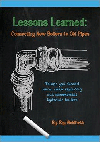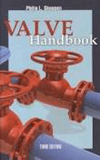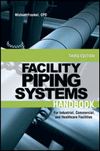President Donald Trump announced Thursday he will impose what the New York Times (in a story written by Ana Swanson) calls “stiff tariffs” on imports of steel and aluminum.
The Times story adds in the story the decision thwarted some of Trump’s top pro-trade advisers and shook the stock markets “as the prospect of a global trade fight loomed.”
The story noted Trump said he would formally sign the trade measures next week, which would impose tariffs of 25% on steel and 10% on aluminum.
The Air-Conditioning, Heating and Refrigeration Institute (AHRI), which represents manufacturers of heating, air-conditioning, commercial refrigeration and water-heating products and equipment, was swift in expressing its disappointment with the decision.
“As we made clear in letters to the president and to Commerce Secretary Ross and U.S. Trade Representative Lighthizer, AHRI does not support additional tariffs on steel and aluminum due to their impact on manufacturers and consumers,” AHRI wrote in its brief.
“As major users of steel and aluminum, we have been proactive in explaining to the administration that the HVACR and water-heating industry would be negatively impacted by an increase in tariffs, as would the consumers that rely on the products we manufacture," AHRI President & CEO Stephen Yurek said. "While we have been pleased with the Trump administration's enthusiastic support for manufacturing, we believe this step to be injurious, rather than helpful, to our efforts to increase American manufacturing and create jobs.”
Last summer, Metals Service Center Institute submitted written testimony in the U.S. Commerce Department’s Section 232 aluminum investigation. President and CEO M. Robert Weidner III advised that any remedies imposed by the Trump administration should:
- Not upset the U.S. aluminum industry’s strong and beneficial trading relationship with Canada and Mexico;
- Provide the same relief for upstream and downstream domestic producers; and
- Give the aluminum industry the time it needs to invest in and establish necessary domestic production capability.
“Countries like China are clearly at fault for the decline of the North American aluminum industry,” Weidner said at the time. “China’s share of the world primary aluminum market rose from 10% in 2000 to a stunning 55% in April 2017. It’s important that the Trump administration remember who the true culprit is and not propose remedies that will harm the United States’ North American trading partners.”
MSCI’s testimony noted China’s 55% share of the world aluminum market is even greater than its share of the global steel market. The testimony also explained there is evidence that, in attempt to circumvent current and rightfully imposed duties, Chinese and other producers simply are processing aluminum into aluminum parts. All of these factors, the testimony explained, have resulted in significant U.S. job losses.
“These job losses and plant closures aren’t due to the U.S.’s inability to produce aluminum and aluminum products,” Weidner explained. “Our domestic industry can compete with anyone when there’s a level playing field. But as President Trump noted in his memo launching this investigation, artificially low prices caused by unfair trade has discouraged long-term investment. This has hurt our economy and jeopardized our ability to meet America’s national security needs. Countries like China cannot be allowed to continue to violate the principles of free and fair trade.”
The decline of service center shipments leaves no question the U.S. aluminum industry has suffered from unfair trade practices, MSCI noted. Aluminum shipments from MSCI member companies in 2016 still were 20% below the peak reached prior to the 2008 great recession. While service center shipments are slowly recovering, they still have not returned to pre-2008 recession levels.
To read the full New York Times story, click here.









